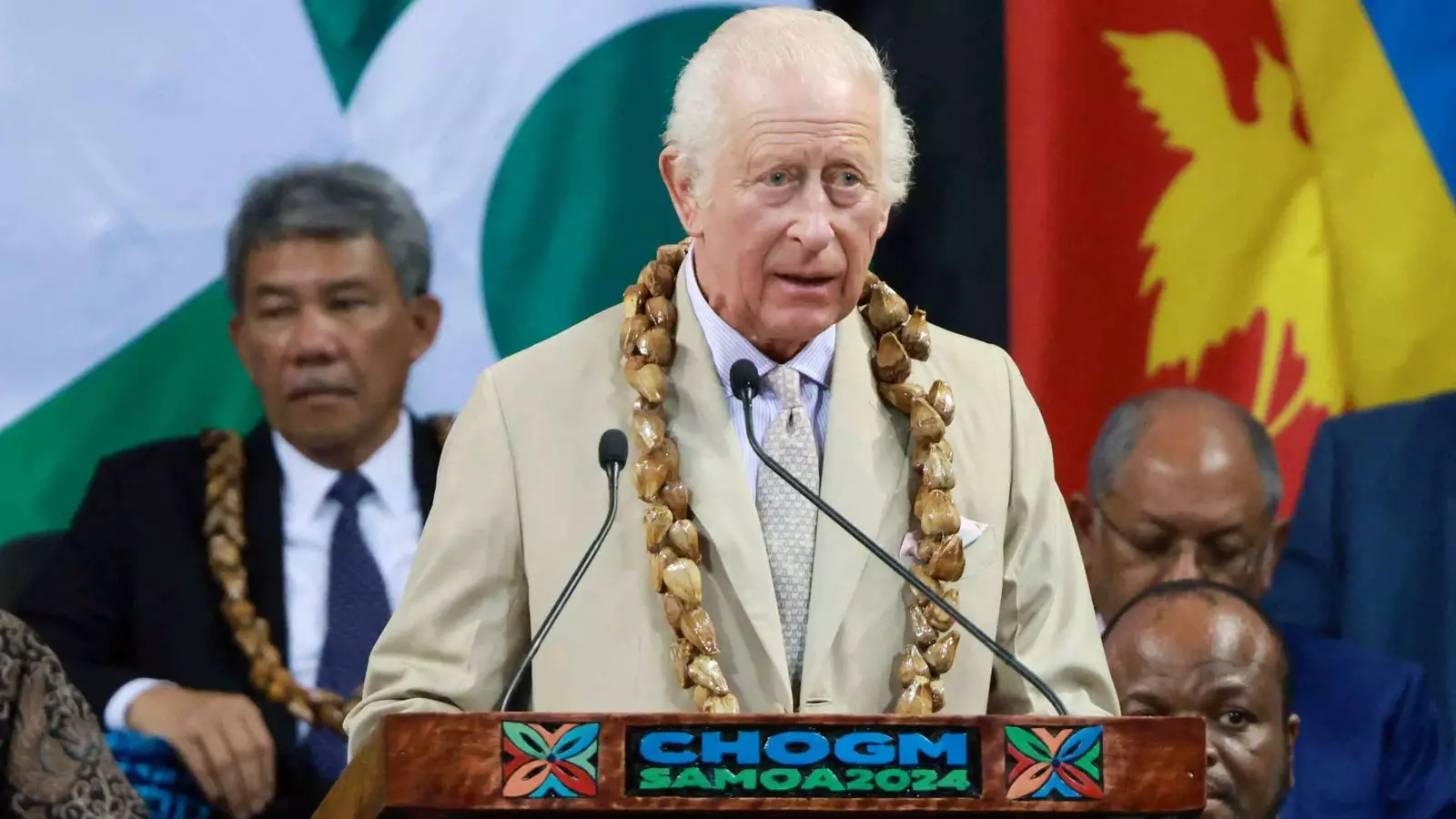The recent Commonwealth leaders’ meeting in Samoa marked a pivotal moment for the institution as King Charles III delivered a speech laden with significance. As he addressed representatives from member nations, the backdrop to his words was a tapestry of historical grievances and societal challenges. This year’s theme, “common future,” subtly hints at unity; however, underneath lies a fracture that threatens the integrity of this once-unified association. Issues of redress for the transatlantic slave trade permeate discussions and have the potential to unleash a crisis within the Commonwealth’s framework.
During the speech, King Charles acknowledged the “most painful aspects of our past,” asserting that understanding history is paramount for shaping a better future. His comments attempted to strike a balance—invoking a sense of accountability while intentionally refraining from explicit terms like “slavery” or “reparations.” Such nuanced language reflects the delicate position the monarchy holds: one that sits above political fray and can often falter when faced with pressing social issues. Advocates for reparations from Caribbean and African nations, however, perceived the address as insufficient. They continue to demand a clear acknowledgement of past injustices coupled with formal apologies from the countries that benefitted from the slave trade.
The call for reparations has become a rallying cry among Caribbean leaders, with some, like Eric Phillips, expressing a bleak outlook towards future relations within the Commonwealth. Phillips provocatively remarked that without reparative actions, the Commonwealth risks losing its relevance as a unifying body. His discontent extends to the political landscape, specifically the decision of UK leaders, such as Sir Keir Starmer, to abandon discussions on reparations. The fate of the Commonwealth may hinge on how these leaders choose to engage with this contentious legacy of colonialism.
Caught between public expectation and political protocol, King Charles finds himself navigating a turbulent discourse. The royal family’s historical entanglement in the slave trade complicates the monarchy’s position; acknowledging the past without direct governmental support can seem ineffectual. The King’s personal sorrow regarding slavery, alongside his initiatives to understand and reconcile with this history, paints a picture of a monarch striving for inclusivity. Yet, critics argue for bolder steps that resonate beyond mere acknowledgment.
Despite the evident divisions, the King concluded his address with an optimistic vision, urging Commonwealth nations to learn from history while taking pride in their present identities. His ending plea for unity and a collaborative path forward resonates with a fundamental yearning for peace and collective progress. While his words celebrated shared heritage, the underlying tension surrounding reparations looms large, indicating that while the speech may have captured the moment’s spirit, it fell short in addressing the profound issue at hand.
Ultimately, King Charles’s address illuminated the chasm between rhetoric and action within the Commonwealth. As discussions of historical accountability heat up, the Commonwealth’s future remains precarious, teetering between hope and unresolved grievances.


Leave a Reply